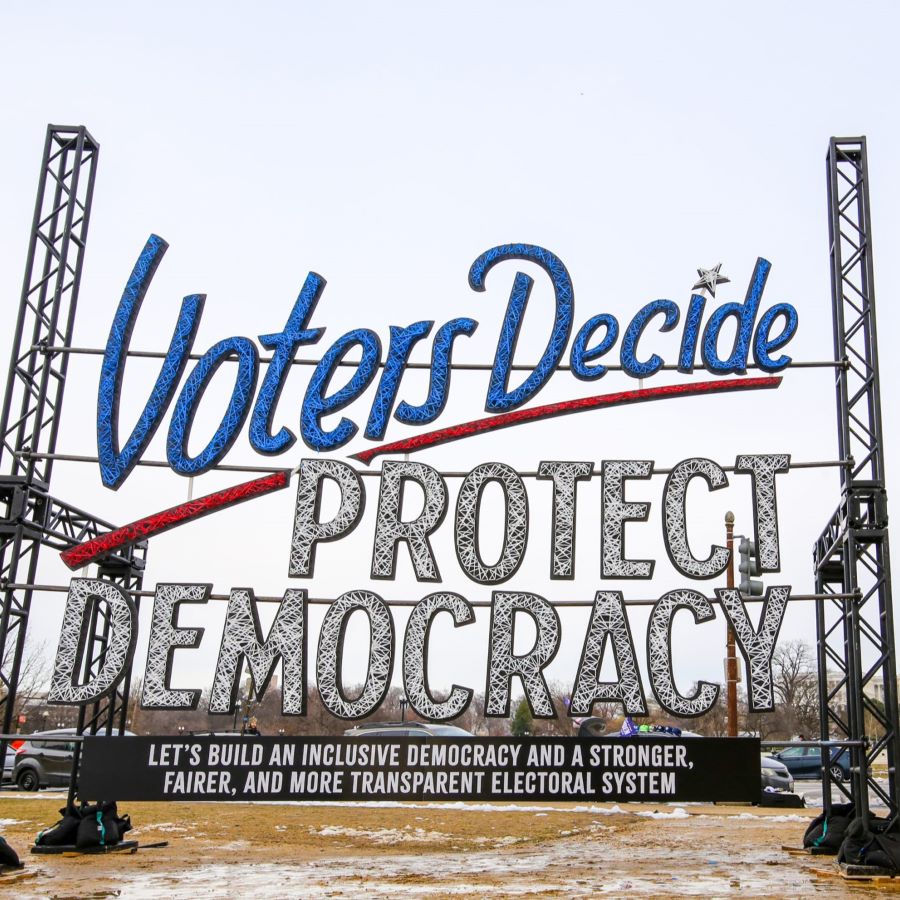
Protect the Right to Vote: Be a Poll Worker on Election Day Sign Up Today

To: Interested Parties
From: Amanda Gnaedinger, State Democracy Policy Director
Date: January 26, 2024
Re: LCV 2024 State Democracy Policy Look Ahead & 2023 Democracy Impact Report
States are continuing the momentum of 2023 to protect voting rights across the country and pass even more pro-democracy bills and block anti-voter laws in 2024. Together, the League of Conservation Voters (LCV) and our 33 state affiliates, collectively known as the Conservation Voters Movement (CVM), have made progress toward protecting and strengthening our country’s democratic institutions, promoting civic engagement, and advancing a more just and equitable democracy.
These efforts build on the CVM’s success driving progress toward a freer and fairer democracy. In LCV’s 2023 Conservation Voters Movement State Democracy Report, we highlight how our state partners advanced major legislation to strengthen our democracy, ensure legal protections for voters, and protect our freedom to vote — blocking 84 anti-voter bills and passing 54 pro-democracy bills in 2023.
Below we’ve highlighted how LCV’s state affiliates helped pass pro-democracy legislation and block anti-voter bills to strengthen our democracy in 2023 and are meeting the urgency of the moment to fight against these attacks on our democracy and protect our right to free and fair elections.
READ: 2023 Conservation Voters Movement State Democracy Report
The Connecticut League of Conservation Voter (CTLCV) was instrumental in helping pass the Connecticut Voting Rights Act (CTVRA), the most expansive state VRA in the nation. The CTVRA includes a key policy expansion beyond the federal Voting Rights Act that allows victims of voter intimidation, deception, and obstruction to take legal action.
In 2023, other CVM state affiliates in Michigan and New Jersey worked to enshrine critical legal protections for voters by creating a groundswell of support at the state level for the future passage of State Voting Rights Acts.
After a flood of democratic success stories across the nation where citizens used ballot measures to secure reproductive freedoms, Ohio Republican assembly members led an effort to gut citizen-led ballot initiatives, raising the threshold to pass any future ballot measure from 50% to 60%. The Ohio Environmental Council Action Fund (OEC AF), working with the One Person One Vote campaign, reached millions of voters in Ohio, and turned them out to protect citizen-led ballot initiatives, which won by a 16-point margin. In subsequent elections, protecting ballot measures ensured that Ohioans were able to enshrine abortion access into their constitution with 56% of the vote, preserving an essential health care option for millions of people.
Since Alaska voters passed ranked choice voting (RCV) via ballot measure in 2020, RCV has become increasingly popular and impactful, allowing more diverse leaders to be elected and producing a huge crop of new and moderate state legislators. The 2023 legislative session was the first opportunity for lawmakers to repeal or amend RCV, and far-right politicians wasted no time in launching legislative attacks.
The Alaska Center (AKC) helped defeat three bills that would have overturned RCV. In fact, at legislative hearings, five times as many people testified in favor of RCV versus against, convincing legislators that Alaskans prefer more choice and more diversity.
Utah currently has one of the most progressive vote-by-mail systems in the country. Every election over 90% of Utah voters cast their ballots by mail. In 2023, anti-voter politicians sought to undermine and even eliminate vote-by-mail entirely. The Rural Utah Project (RUP) defeated multiple bills attacking vote-by-mail by mobilizing and rallying Utahns, particularly Indigenous and rural voters. Working with legislators, RUP ensured these bills were deprioritized and defeated in committee. RUP didn’t stop at defense and also worked to create uniform standards for ballot curing, which passed unanimously.
###